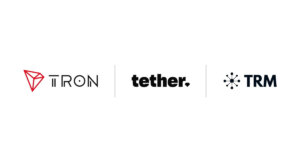 Japan looks to amend crypto KYC rules
Japan looks to amend crypto KYC rules Japan looks to amend crypto KYC rules
The Japanese government has decided to revise six laws related to foreign exchange, which will also affect crypto trading platforms.

Cover art/illustration via CryptoSlate. Image includes combined content which may include AI-generated content.
The Japanese government passed a cabinet decision to revise six foreign exchange laws to better combat money laundering on Oct. 14. These changes will also affect crypto trading businesses, as local news outlets report it.
The revised bill will tighten know-your-customer (KYC) rules for crypto exchange businesses and expand money laundering penalties for all institutions. The bill will be submitted for approval in the current National Diet session.
The revisions
The revisions don’t precisely aim at crypto companies. According to the reports, the Japanese government has been looking to strengthen anti-money laundering measures since September 2010.
In addition to various new precautions that haven’t been disclosed, the country will give itself the right to freeze the assets of individuals and institutions if they are involved in crimes related to money laundering.
However, given the wide usage of crypto exchanges and mixers, Japan considers digital asset trading a possible money laundering tool. Therefore the new revisions will also apply to crypto trading businesses as well. After the modification, platforms that offer crypto asset exchange services will be obligated to run a more detailed KYC process to confirm user identities.
The Japan Crypto Asset Exchange Association (JVCEA) reportedly requested its member exchange platforms to take individual precautions against money laundering. Major crypto exchange platforms of the region, such as CoinCheck and GMO Coin, have responded by tightening rules.
Crypto regulations in Japan
Japan became the first country to implement a legal framework regulating cryptocurrencies by including specific rules under its Payment Services Act in May 2016. The act came into force in 2017 and recognized crypto assets like Bitcoin (BTC) as legal tender.
Since then, the country has been introducing new measures every couple of years, making it harder for crypto businesses to operate.
One of Japan’s most prominent exchange platforms, CoinCheck, suffered a major hack and lost around $500 million in early 2018, which motivated the Japanese government to take precautions. In 2019, all crypto exchange businesses were subjected to the country’s anti-money laundering and combatting financial terrorism rules.
Two years later, in 2021, Japan applied additional regulations specific o DeFi protocols. In 2022, after the Terra Luna collapse, the country passed another bill that limited the usage of stablecoins only to licensed banks.
Trying to support crypto without losing up on regulations
Continuously tightening regulations has been pushing crypto businesses out of the country. Most of them choose to relocate to a nearby crypto-friendly country like Singapore.
The government also realized the rapid shrinking in the number of crypto businesses. On Aug. 2022, Rakuten Group President Hiroshi Mikitani self-criticized and said the rules were too tight to allow crypto to flourish. He said:
“Most people go to Singapore because it’s stupid to start a business in Japan,”
After acknowledging the facts, the Japanese government announced a twist in the crypto tax regulations.
The country’s Prime Minister, Fumio Kishida, said that 2022 would be the “first year of creating start-ups,” and the government might lower crypto tax rates to encourage crypto start-ups to set up businesses in Japan.
Currently, Japan taxes corporate investors 30% and individual investors up to 55% for all realized and unrealized gains from crypto. The government didn’t disclose to what rate they might be lowering these tax rates.



 CryptoQuant
CryptoQuant 























































































